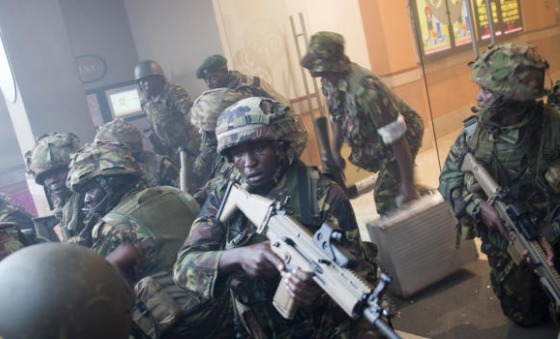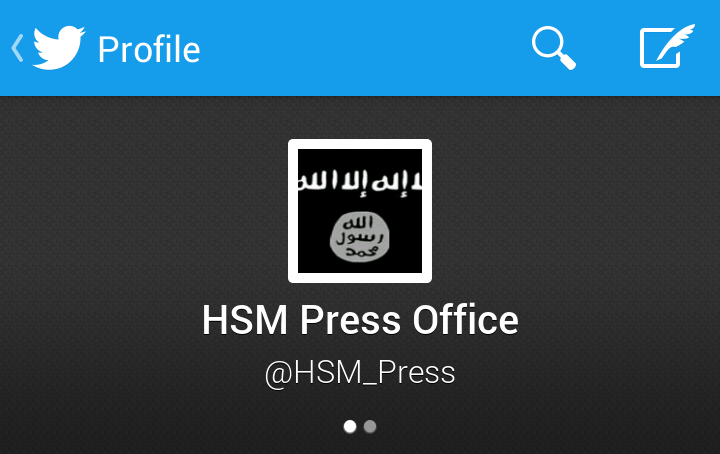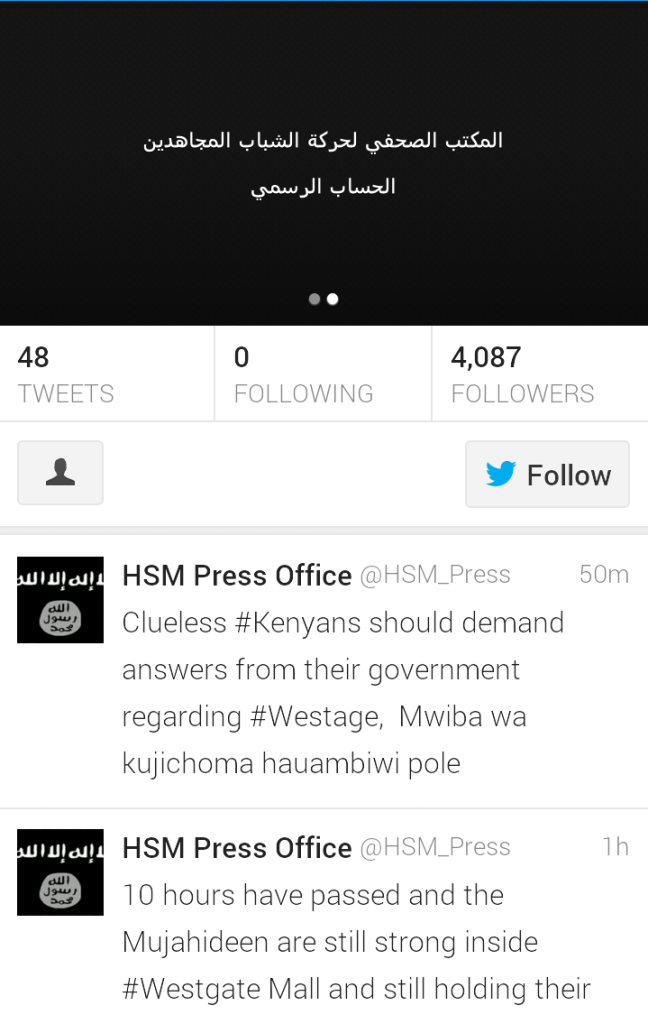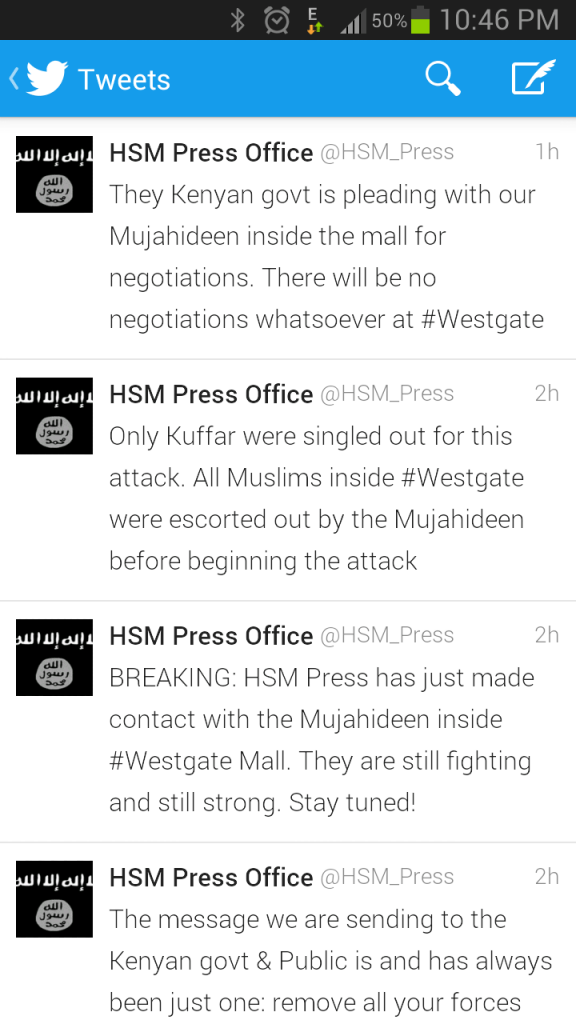
On September 21st armed gunmen stormed a shopping mall in Nairobi, claiming the lives of 39 innocent civilians, injuring hundreds more and effectively marking the worst incident of terrorism the country has endured since the US embassy bombings of the 1990s. If you haven’t been following the story, don’t worry, al Shabaab has you covered: As the violence unfolded, the militant Islamic group responsible for the massacre was live-tweeting the events.
I first came across this while crawling the internet for the latest updates on the tragedy. Naturally, I ended up on everyone’s equally resourceful and unreliable quasi-news aggregator, Twitter. I quickly arrived at HSM Press Office – al Shabaab’s official account. What I discovered was harrowing. Not only was al Shabaab claiming responsibility for the attacks, they were using the social media platform to chronicle their assault and document their cause, all under #WestgateMall. Yes, we now live in a world where terrorists are hashtag-ing.
It goes without saying that social media has transformed the news cycle. People are increasingly turning to their computers and smart phones rather than rushing to the TV in order to follow stories as they develop. Newspapers and other forms of archaic print media are quickly learning that the dissemination of information is now expected at lightning speed. People expect their news instantaneously, preferably in 140 characters or less. As news is becoming crowd-sourced, the emphasis has become less on reliability and more on speed.
All this is well and good. We’ve heard this before, we’ve seen this before and we’ve experienced this before. But to have terrorists tweeting as they take innocent lives? To have a perpetrator sitting behind a laptop, or holding a smartphone, and actually documenting these attacks? This is not the Olympics. I am not checking the Premier League scores, or who was eliminated on #xfactor. These are human lives. This is terrorism. It’s one thing when reporters, news crews, or even civilians are reporting live as events unfold. It is a complete alternate reality when a murderer is taking pride in his accomplishments and flaunting them on the infinite World Wide Web. Perhaps the greatest benefits of the internet – the seeming democratization of information and a platform for any wired citizen of the world to speak – could also be the greatest threats to modern communication and, in this case, humanity.





